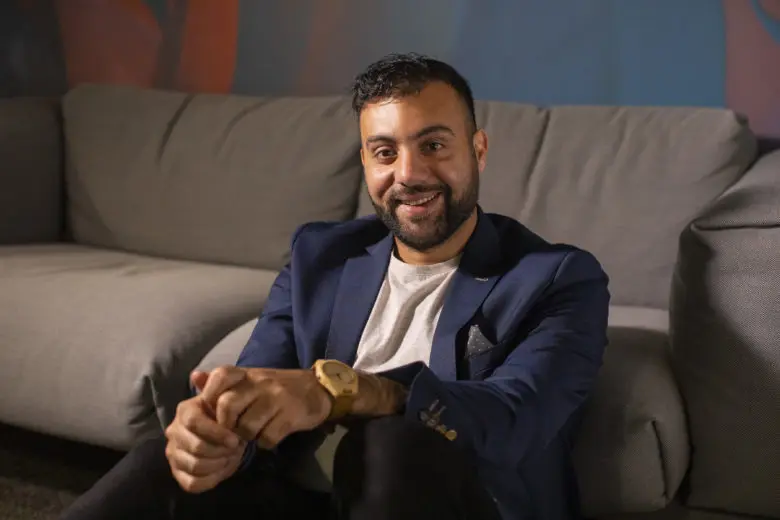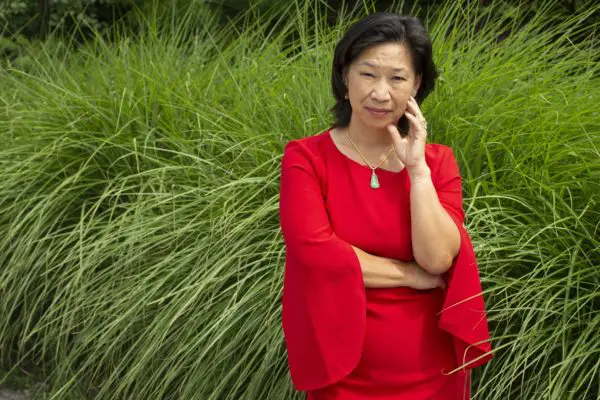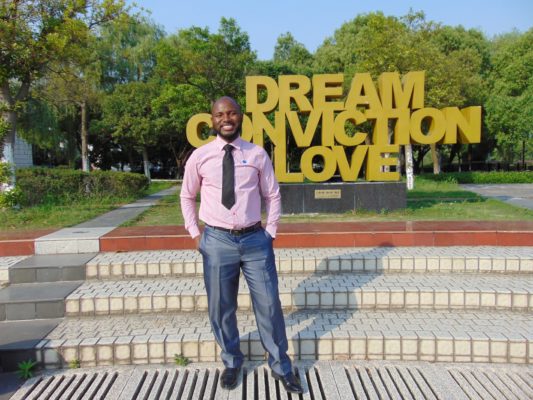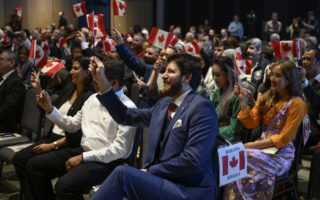
Mustafa Alio, Managing Director of Jumpstart Refugee Talent is photographed in Toronto, on Wednesday August 5, 2020. © UNHCR/Chris Young
By Susan Pedwell
Living in Canada, Mustafa Alio hadn’t the faintest idea he was about to become a refugee.
Mustafa left Syria in 2007 as an international student. After the Syrian civil war broke out in 2011, if he returned home he would be tortured and most likely killed.
“I certainly planned to go back to Syria because when I arrived in Toronto, I didn’t know a soul and couldn’t speak a word of English,” says Mustafa, now 36. He quickly enrolled in a language school, and to put food on the table, he got a job cleaning toilets. And he tried not to dwell on how sublime his life had been in Syria.
When Mustafa was 19, he was the youngest of Syriatel’s 3,600 employees and was quickly climbing the tech company’s career ladder. By the age of 23, not only was he making a dazzling salary, the company had given him two coveted luxury items: a car and a cellphone.
What’s more, he lived in Latakia, Syria’s seaside party town. When he wasn’t working or studying for his business degree, he was playing basketball, going to clubs with his lifelong friends or swimming in the Mediterranean Sea.
“I certainly planned to go back to Syria because when I arrived in Toronto, I didn’t know a soul and couldn’t speak a word of English.”
But Mustafa was eager to further his education abroad. Specifically, he was drawn to a postgraduate degree in marketing and financial services in Toronto, which he completed while working assorted jobs. “When I landed a position as a financial adviser at a major bank in 2010, life in Canada was starting to look good, so I applied for permanent residency.”
Then something happened back home on March 15, 2011: The civil uprising began. Mustafa, like thousands of young activists across Syria, began posting support for the revolution online. Almost immediately, the threats started. “I began getting phone calls,” he recalls. “The voice on the other end of the phone would warn, ‘Don’t you dare come back.’”
The next year, Immigration Canada rejected Mustafa’s application for permanent residency because he scored two points short. “I couldn’t go back to Syria,” he lamented, “but Canada didn’t want me either.”
Mustafa applied for political asylum in Canada and became a refugee claimant, facing lawyer meetings, court hearings and delay after delay. “It was costly financially, and it was costly emotionally because I was living in limbo,” he says.
In 2014, Mustafa was granted asylum and began what he calls “wooing” his new country. He co-founded the Syrian Canadian Foundation to empower newcomers. He co-founded Jumpstart Refugee Talent in Toronto, which has since expanded to Vancouver and Calgary. Now, he’s the managing director of Jumpstart, which bridges the gap between refugee arrival and meaningful employment and entrepreneurial opportunities.
“There is hard evidence that refugees are not a financial burden. Economically, refugees give back more than they take.”
In 2017, his mother, two sisters and a nephew arrived in Toronto through a private refugee sponsorship. But an important family member was missing: his father. Mustafa’s dad had stayed behind to ensure their extended family members were safe. But just weeks before Mr. Alio was to join his family in Toronto, the stress of protecting them from the atrocities of war contributed to a fatal heart attack. And not being able to see his father again broke Mustafa’s heart.
Today, Mustafa’s mom is getting reacquainted with her only son. “I’m a completely different person than I was in Syria,” says Mustafa, who became a permanent resident in 2018. “Before, I was financially and career driven, and now I’m an advocate. I work toward positively affecting other people.”
As a former member of the UNHCR Canada Advisory Council, Mustafa helped to raise its profile, help provide refugees access to employment and change the narrative about newcomers by using an economic lens. “There is hard evidence that refugees are not a financial burden,” he says. “Economically, refugees give back more than they take.”
Mustafa also represents refugees on myriad committees, some of which have routinely not included refugees in decisions about programs designed to help them. “The benevolent voices of empathy and support drown out the voices of the refugees,” he says. “Refugee is a legal status, not an identity. They are humans like everyone else.”
To learn more about our #IWasARefugee campaign, visit our website. To sign our #IAmAnAdvocate pledge, please click here.





